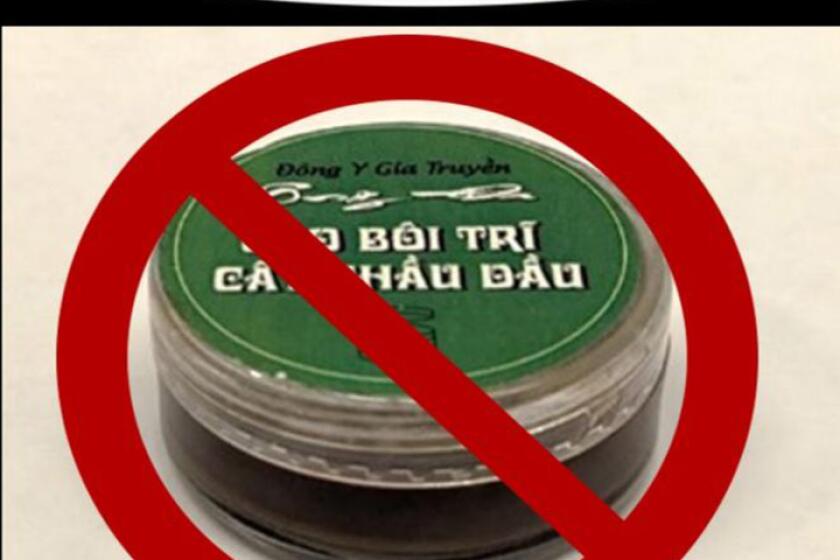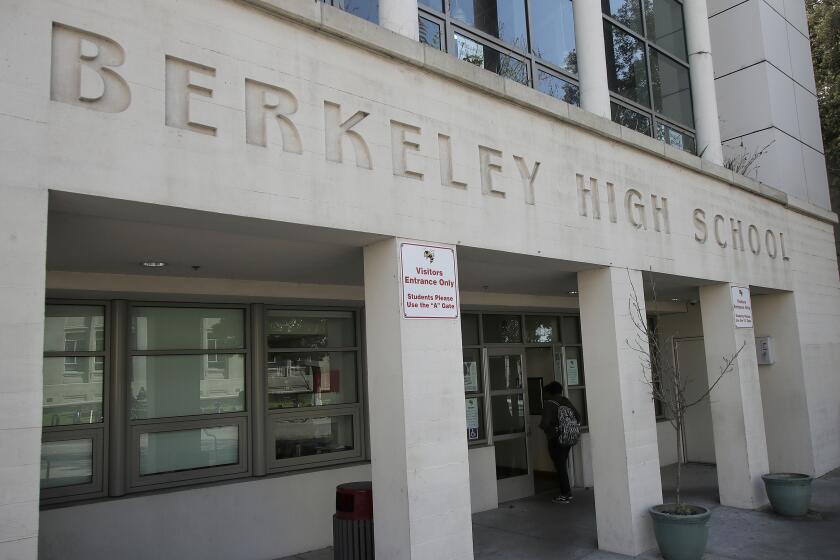City settles racial prank lawsuit
A black firefighter who was served dog food in his spaghetti by fellow firefighters will be paid more than $2.7 million to settle a lawsuit alleging racial harassment within the Los Angeles Fire Department.
The award, approved on an 11-1 vote Wednesday by the Los Angeles City Council, is the latest in a recent string of settlements of lawsuits by firefighters claiming discrimination and harassment and retaliation against those who complain.
It is believed to be the largest payout for misconduct in the department’s history, which was long considered among the nation’s finest, but has often been the target of complaints about hostility toward African American and female firefighters.
Firefighter Tennie Pierce, 51, alleged in his lawsuit that Firefighter Jorge Arevalo mixed canned dog food into Pierce’s dinner at their Westchester station two years ago; that Capt. John Tohill purchased the dog food; and that Capt. Chris Burton knew about the prank but didn’t warn Pierce. All three men were present when Pierce ate the dog food.
Pierce “took a large bite, at which time he noticed the other firefighters were laughing and making noises,” the lawsuit says. He took a second bite, then demanded to know what was in his food, “but no one would tell him.” Pierce then left the kitchen “with his co-workers laughing at him.”
A Fire Department investigation suggested the incident was intended to “humble” Pierce -- who stands 6 feet 5 -- after his team won a fire station volleyball game. A lawyer for one of the defendants initially called the incident “a good-natured prank ... [not] in any way motivated by race.”
But a UC Santa Cruz professor who was hired by Pierce’s attorney to review department records of discrimination complaints said the prank was clearly intended to “humiliate and dehumanize” Pierce.
“The association of a black man and dog food resonates with the deep historical roots of slavery and the corresponding dehumanization,” said sociologist David Wellman, co-author of “Whitewashing Race: Colorblind Policies in a Color Conscious America.”
“It’s not just silly stuff. It’s racially motivated.... The organization labels it as macho, ‘boys will be boys’ behavior. I think it’s more about keeping blacks out by making their lives so miserable that they don’t want to stay.”
In addition to the three firefighters, the lawsuit named the city as a defendant because the fire captains allegedly allowed a hostile workplace to exist in violation of department policies forbidding harassment. The two captains were given one month off without pay as punishment. Arevalo was ordered off work for three days without pay. As part of the settlement, they were dismissed from the lawsuit, so they are not liable financially.
Fire Chief William Bamattre admitted the incident was “intolerable” and violates department “guidelines on what’s professional performance.... That type of harassment or prank or whatever you call it is not consistent with what the public expects from the Fire Department, the confidence the public has in us.”
But Councilman Dennis Zine, a police officer for 38 years and the lone vote against the settlement, said he thought the $2.7-million award was “outrageous for something that caused no serious injury, no permanent harm.... “
“That’s not to say it was right, not to justify what they did. But $2.7 million?.... I don’t think it was a racial deal. It was a prank that turned sour, but did it go bad to the point that he’s harmed for life? That it should cost the taxpayers $2.7 million?”
In his lawsuit, Pierce said that for more than a year after the October 2004 incident he was subjected to “verbal slurs, insults [and] derogatory remarks” -- including taunting by firefighters “barking like dogs [and] asking him how dog food tasted” -- in the presence of supervisors.
In addition to the payout, the settlement provides for Pierce to remain on fully-paid administrative leave until April, when he reaches his 20-year service anniversary. Then he can retire with an annual pension amounting to half of his salary for life.
Pierce was out of town and could not be reached for comment Wednesday. But his attorney, Genie Harrison, said the incident -- and the unwillingness of other firefighters at the table to intervene -- was a “shocking betrayal” for Pierce, who grew up in South Los Angeles.
“He was targeted by people he considered brothers and then was mercilessly harassed out of the job that meant so much to him,” Harrison said. “Now he’s calling for the public’s help to change the working environment for African Americans who remain on the department.”
The department hired its first black firefighter in 1897, but for almost 60 years blacks were assigned only to segregated stations in black neighborhoods. As the city’s black population grew, all-black crews began displacing white firefighters, who often responded with animosity. In 1936, white firefighters at a Central Avenue station who were forced to move to accommodate a black crew responded by trashing the station with garbage and human waste.
In the 1940s, pressure mounted to integrate the force. But then-Chief John H. Alderson declared integration a “social experiment” and refused; 90% of white firefighters joined a fund-raising campaign to support him. Those who expressed a willingness to live and work alongside blacks were ostracized by peers and often disciplined for insubordination.
The city’s fire stations were officially integrated in 1956, but blacks were denied kitchen privileges and subjected to such vicious hazing that off-duty black firefighters began patrolling integrated stations, some carrying guns.
In 1974, the department entered into a federal consent decree that required half of all new recruits to be black, Latino or Asian American. The decree was lifted in 2001, but some blame it for lowering morale and stoking resentment among white male firefighters who considered it reverse discrimination and complained that it allowed the hiring of unqualified minorities.
Today the 3,600-member department is 53% white, 29% Latino, 12% black and 5% Asian American. Women make up 2.7% of the department.
But some say the diversity masks problems that has continued to hold minorities back.
In 1994, complaints of discrimination reached such a fever pitch, the City Council ordered an audit of the department and held hearings that led to the resignation of Chief Donald Manning. The audit found that women and minorities were frozen out of management positions and often drummed out of the department as rookies.
An audit earlier this year by City Controller Laura Chick revealed similar findings. Among black firefighters, 87% said they had experienced or witnessed discrimination.
Some firefighters say pranks are part of the firehouse culture and not directed specifically at blacks. But black firefighters report much of the teasing they experience involves racial slurs, offensive comments or pranks aimed at humiliation.
“Blacks have experienced this for over 300 years,” sociologist Wellman said. “They have a gyroscope that picks up hostile stuff that somebody else would not see as hostile.
“Culture becomes very important,” he said. “In the black community people come together and talk about the way they’ve been treated. They run it up the flagpole ... ‘Tell me if I’m off the wall here.’
“Their group picks it up and your group doesn’t because their group has a history that yours doesn’t share.”
More to Read
Start your day right
Sign up for Essential California for news, features and recommendations from the L.A. Times and beyond in your inbox six days a week.
You may occasionally receive promotional content from the Los Angeles Times.






